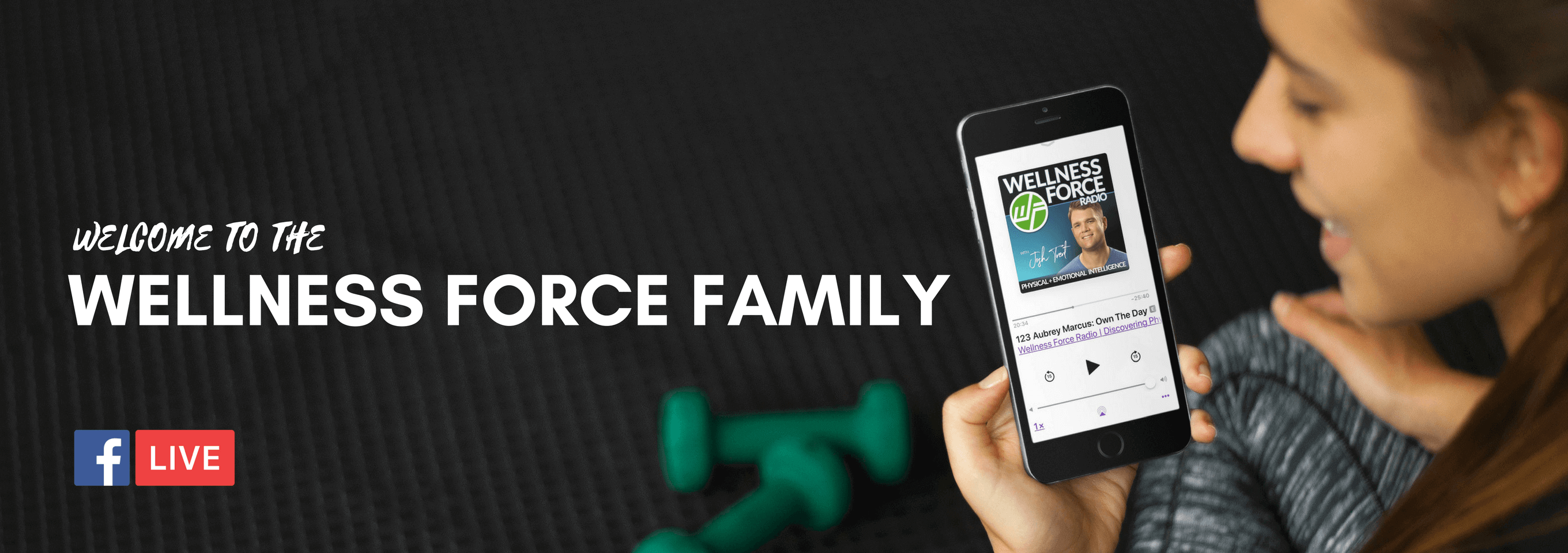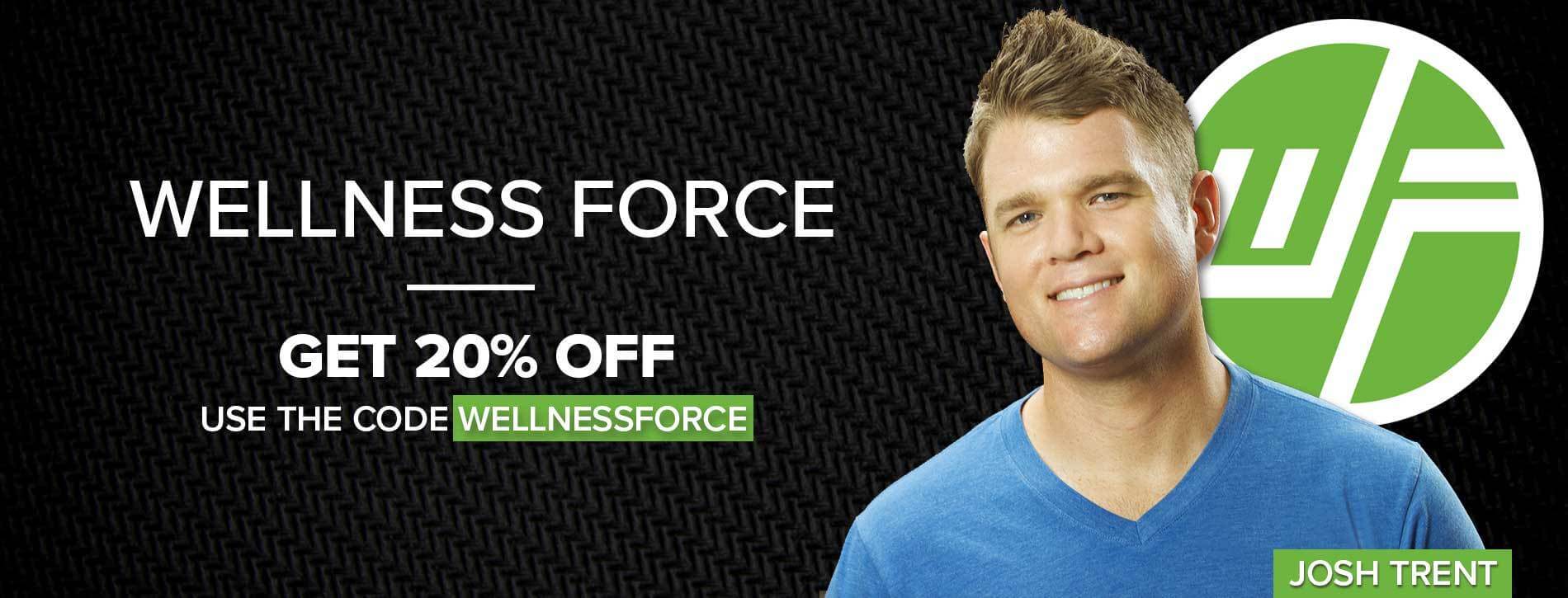Mar 19, 2019
Meat consumption has played a significant role in the evolution of human culture besides just improve the physical health of our ancestors. - Shawn Mihalik
Should we eat meat or not and why?
What impact does sustainably-sourced animal proteins have on not only our own wellness but the health of the planet as well?
---> Join the Wellness Warrior VIP Club: get exclusive discounts on new wellness tools, be first in line for new podcasts, get access to invite-only events, and so much more.**
---> Get The Morning 21: A powerful (and free) system designed to give you more energy, let go of old weight, and live life well.
JOIN THE FACEBOOK GROUP | *REVIEW THIS PODCAST
In Wellness Force Radio episode 262, Writer and Managing Editor of Paleo Magazine, Shawn Mihalik, discusses his latest piece, Can We Fix Meat?, the differences between cellular agriculture or the "lab-grown meats" and regenerative agriculture, and whether or not meat can be eaten from a moral perspective.
Why do we still have this ongoing debate on whether or not we should still be eating meat? How has the conversation shifted from being focused on morals to the environment? Find out.
Can We Fix Meat?
Click here to learn more about the Paleo Magazine article, Can We Fix Meat? by Shawn Mihalik
In his latest article for Paleo Magazine, Shawn Mihalik explores the state of the meat industry and how we can think about meat going forward. Written for Paleo Magazine's February issue, it lays out the current landscape with regards to the issues posed by the meat industry as well as a look back at meat's role in the human evolution.
Subscribe To Paleo Magazine
Click here to subscribe to Paleo Magazine
Paleo Magazine is dedicated to providing readers with the information they need to live healthy, active lives. Each bi-monthly issue is packed with the latest research, exercise and nutrition, interviews, inspirational stories, recipes, reviews, info to raise Paleo kids and much more!
"Meat consumption did more than just affect our ancestors physically, it also played a significant role in the evolution of human culture." - Shawn Mihalik
Listen To Episode 262 As Shawn Mihalik Uncovers:
- How lab-grown meats are created, the on-going process to perfect it, and the ethical standpoint behind it.
- The problems, no matter how advanced these "fake meats"are, that exist for our health and the planet.
- Ingredients that are in the fake Beyond Burger and Impossible Burger and what makes them "bleed".
- The extreme price of both the Beyond Burger and Impossible Burger and why it's probable that we may never actually be able to purchase them on our own at the store but will be able to find them in restaurants.
- How meat plays a role in the evolution of our brain size and human culture.
- What it is about our human nature that entices us to hunt an consume meat.
- Vital nutrients that are in meat and not plants such as bioavailable vitamin B12.
- The EAT-Lancet study on meat and why they recommended eating only 2 oz of meat a day with the environment in mind.
- Evidence that it might not actually help the environment if we stop eating meat because of the shift in focus on crops that also need a lot of resources.
- The importance of meat for human brain development.
- Differences in the meat we eat today compared to what our ancestors ate.
- What the FDA knows and doesn't know about the ingredients in our food including the lab-grown, fake burgers.
- Tyson's chicken investing in both the lab-grown and fake plant-based meats.
- Why some of the world's richest people like Bill Gates and companies like Tyson are researching lab-grown and plant-based fake meats.
- What would happen if the government helped invest in local farming in the USA to create more Polyface farms.
- The benefits of eating various parts of an animal's organs from tripe to the tongue for their nutrients.
- Various diets he has tried before finding Paleo and why his health greatly suffered while on a vegan diet.
- His future plans to continue investigating how meat plays a part in our health, culture, and future.
- Other sources of nutrition from fish to insects like crickets.
- The carnivore diet that has recently taken off in the last couple of years.
Power Quotes From The Show
"If you can afford to eat grass-fed, then eat fattier cuts of meat but if you can only afford to eat traditional meat, then eat as lean of meat as possible." - Shawn Mihalik
"Crops such as wheat, rice, and soy take a lot of resources and deplete the soil. In comparison, regenerative farms, take us to a whole other level of farming. If done right, they can be carbon positive. If you were to eat animals that were raised this way, you would be actively helping the environment because it nourishes the soil, actively restores grasslands, and new wildlife if brought into the area." - Shawn Mihalik
"Most animals that we eat today are not fed the grasses that they were evolved to eat but wheat, soy, and corn which are heavily modified. This then leads the animals to develop a whole different omega 3 to omega 6 ratio than what our ancestors ate. We can still find the same type of meat that our ancestors ate but the majority of us are eating animals that have been raised in these stressful, abusive environments and we're eating the energy of these animals." - Shawn Mihalik
"Most of our current cropland is actually being used to grow the wheat, corn, and soy that is feeding factory farmed animals; not to grow what's feeding humans and that is part of why we currently have a food shortage. So, if everybody ate sustainably grown meat, we would be repurposing a lot of that land and replenishing that soil as well. In addition, we probably wouldn't be eating as much meat as we currently do now but we would be eating higher quality meat." - Shawn Mihalik
Links From Today's Show
- Shawn Mihalik
- Paleo Magazine
- Paleo Magazine Radio
- PMR #249: Can We Fix Meat?
- Beyond Meat
- Impossible Burger
- Bill Gates and Kimbal Musk Make Beefy Investment in Lab-Grown Meat
- Beyoncé and Jay Z Want You to Join the Vegan Movement
- Tyson Foods Makes Another Investment in Lab-Grown Meat
- Fast Take: The EAT-Lancet Report on Sustainable Diets
- Paul Stamets
- Candace Pert
- Bruce Lipton
- Sam Harris
- Sustainable Dish
- Memphis Meats
- Just Meat
- Joel Salatin Polyface Farms
- Joe Rogan Experience #1208 - Jordan Peterson
- Mikhaila Peterson
- Joe Rogan Experience #1050 - Dr. Shawn Baker
- A Big Vegan YouTuber Is Leaving Veganism After He Broke Down And Ate Raw Eggs After A 35-Day Water Fast
- WFR 084 Dr. David Perlmutter
- WFR 112 Mark Sission
- WFR 179 Josh Tickell
- WFR 226 Paul Chek
- WFR 234 Darin Olien
About Shawn Mihalik
 Shawn Mihalik is a writer, editor, and
(maybe?) photographer. He’s the author of five books—three novels
and two novellas—as well as short stories, essays, and
journalism.
Shawn Mihalik is a writer, editor, and
(maybe?) photographer. He’s the author of five books—three novels
and two novellas—as well as short stories, essays, and
journalism.
Shawn was born in San Diego, California, and grew up in Youngstown, Ohio, where he worked in several restaurants. After a year studying journalism at Youngstown State University, he dropped out, moved to Pittsburgh, and wrote a scathingly hilarious novel about the world of American restaurant chains.
In 2013, Shawn drove across the country, to Missoula, Montana, where he became The Minimalists first tour and operations manager and, eventually, editor in chief of Asymmetrical Press.
Shawn currently lives in Central Oregon and is the managing editor of Paleo Magazine. An avid lover of all things analogue, he regularly contributes to TheCramped.com. He teaches a popular online writing class, How to Write Better, with his friend Joshua Fields Millburn.






